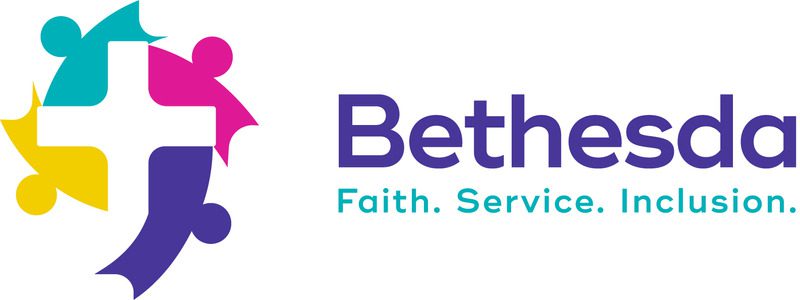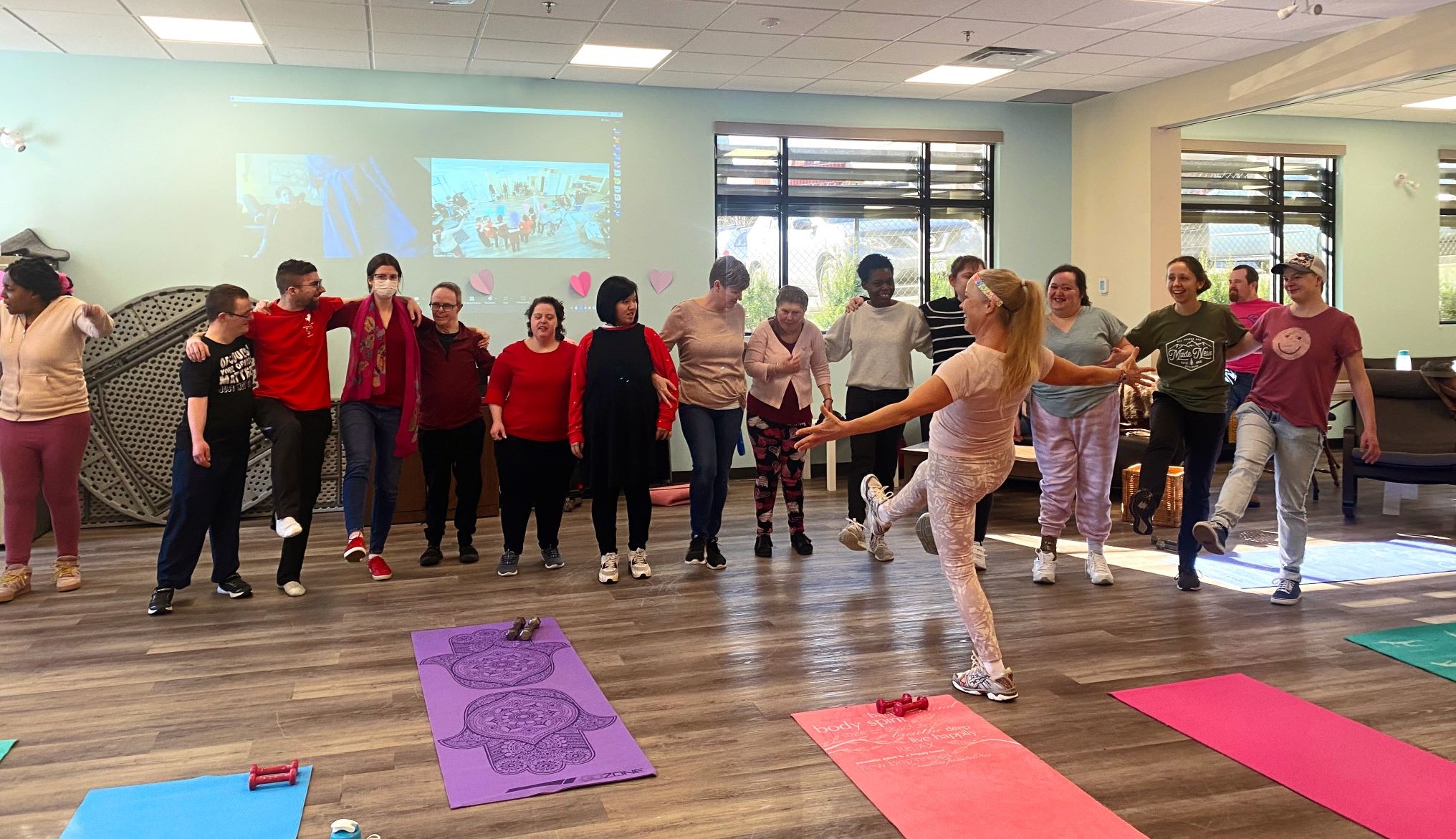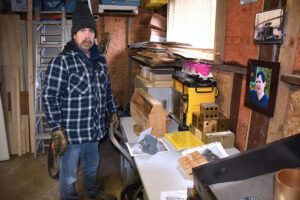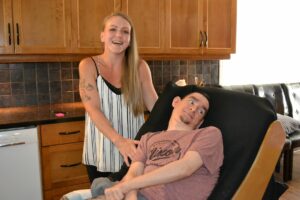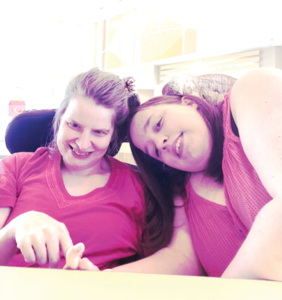We find ourselves marveling at the stories we hear that speak to the safety and warmth felt by those who are a part of this community. Whether it's the secure environment of a staffed-supported home, the joyous reunions at camp after a year apart, the shared meals in intentional communities, or the camaraderie in adaptive exercise classes—each narrative resonates deeply. It’s this latter story, we can’t help but share.
Shelley is amazing. As the adaptive exercise class instructor, the energy and positivity she brings to each session is her superpower. She often shows up to class in vibrant exercise attire (and sometimes costumes!) that focuses all eyes on her. She knows everyone’s names, what songs or kind of music they like and makes a point of making sure participants hear at least one song that gets them moving! She connects with each person, showing them how they can join in, and assuring them that whatever they do, has value. This sense of belonging makes this a much-loved activity at Bethesda.
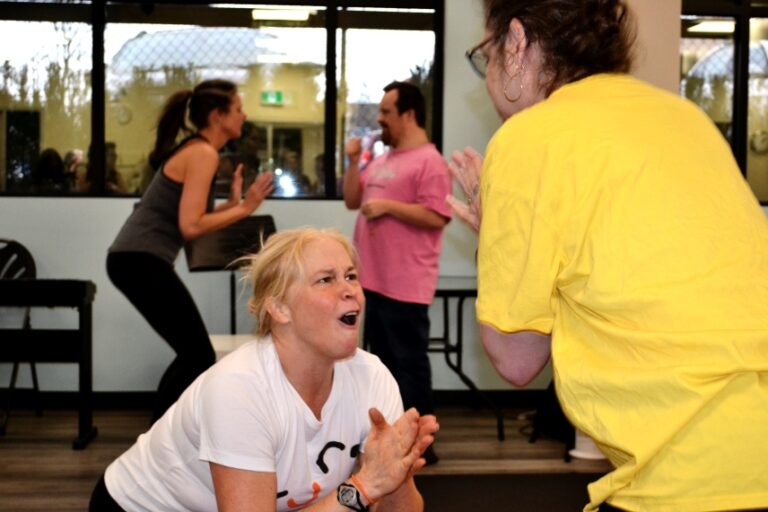
Her class is held each Tuesday morning at Tapestry Community Inclusion, one of Bethesda’s community inclusion (CI) services. Participants come from various staff-supported homes, other CI services or from home shares and they know when they enter the doors, they are welcome and that they belong. They are first greeted by Colleen, a Tapestry CI worker, at the door as she registers everyone, and then enthusiastically greeted by their friends. This community thrives on genuine peer relationships. So much so, that someone’s absence will prompt inquiries and concern.
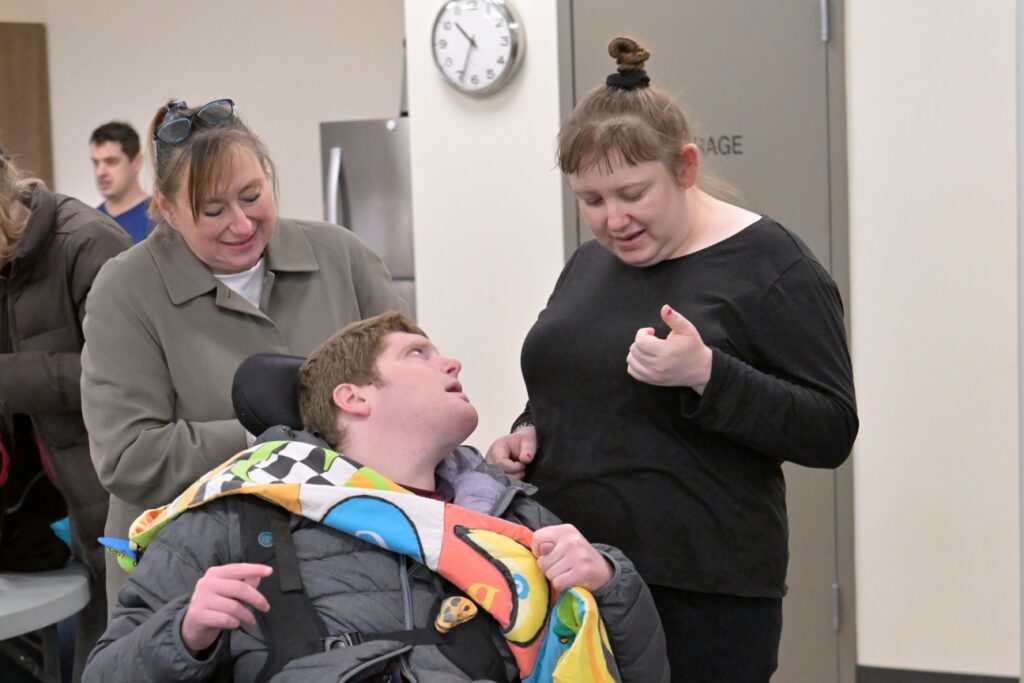
The space at Tapestry’s exercise class is well-suited to building friendships. Above, Richard and Ashley reconnect upon arrival. Participants look forward to seeing their friends and notice when someone is absent.
When people walk or roll through the doors, some are keen and eager, while others may be more reserved. Shelley says, “With different people we can have different moods, so I just come in, I read the room, and see what the need of the group is today. We go on the fly and sometimes halfway through that will change and we try something else. We keep continually trying to keep everyone interested.”
The music is a big part of the appeal. “Music for everybody can be uplifting and motivating so I try to make it a point to play music everybody’s going to like. We’ve got different genres for different people. We’ll start with one genre, say we’re going to do pop now, and a little later on we’re gonna switch it and we’ll do some 80’s rock n roll and that gets the guys really moving. Or maybe go to some disco and make it light-hearted and we kind of laugh. We mix it up, keep it interesting.”
Once Shelley turns up the music and greets the group, people warm up at their own pace. On their mats, they move, dance, lift, bend, stretch, each one doing what they can. Shelley encourages each person, and after a while, there’s a good chance even the people on the sidelines join in. It’s that infectious. Because it’s adaptive, “…whatever movement you bring at whatever level is perfect.”, says Gwen, a Tapestry CI worker. There’s no pressure to perform, everyone is welcome and included in whatever way they feel most comfortable.
Beyond the physical benefits of the class, it has evolved into a community that contributes significantly to social and mental well-being and provides a sense of belonging. The small, interactive space fosters friendships, facilitated by the uplifting music, creating a genuinely happy environment where people feel free to be themselves.
There’s a richness to their relationships that comes from really knowing each other, because “nobody ever feels like they have to be anybody but themselves.” Gwen explains. She told a story about one woman who was having a hard time one day. Her friend Michael noticed and went over to her and comforted her. They were joined by another friend, who then prayed with her.
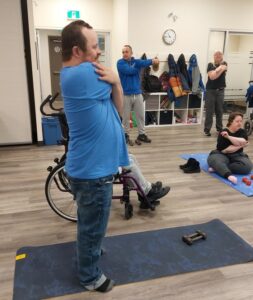
Adaptive exercise means each person is supported to find ways to move that benefit them and help them to feel a part of the group.
Not everyone participates in the way you’d expect. They may not stand on their mat, face the instructor, Shelley, and follow her lead. They may be like Cameron, who almost always walks around, will go up to people and gently put his hand on their shoulder and continue on his way. His support worker Trevor, acknowledged the value of the interactions Cameron has with other people in the class, “it’s good for him socially”. And he lights up when Shelley draws him in with her attention.
Gwen tells the story of a newcomer, Sandra. Sandra was understandably nervous about coming to a fitness class the very first time. She showed up with her LIFE Services coach and opted to watch from the side of the room. That is, until she got up mid-session and joined in! Gwen says, “After class, I asked her what she thought, and she said she loved it. And then she came back the next week – on her own – and even brought with her a new pink mat she had bought!”
The joy in the room and enthusiastic responses like Sandra’s tell us inclusive spaces like this exercise class provide a great deal of meaning and value to each participant.
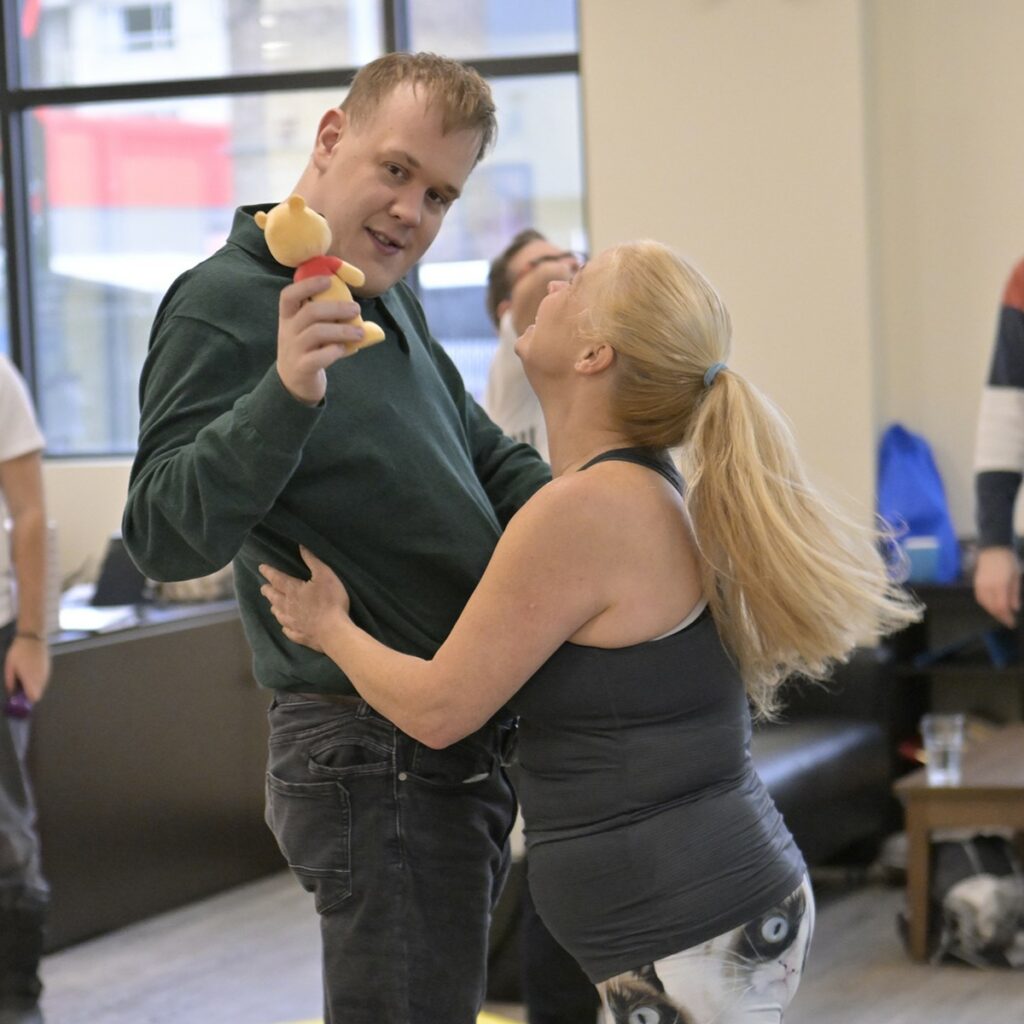
Cameron doesn’t participate in the exercises in the traditional sense, but he enjoys the interactions with people and looked relaxed and happy when Shelley drew him out during a recent class.
Help Support Tapestry's Exercise Class
During the month of February we are raising funds to purchase additional workout equipment, such as exercise balls, bands, new mats and more dumbbells. All to provide a diversity of workout options for participants. Your donation is greatly appreciated.
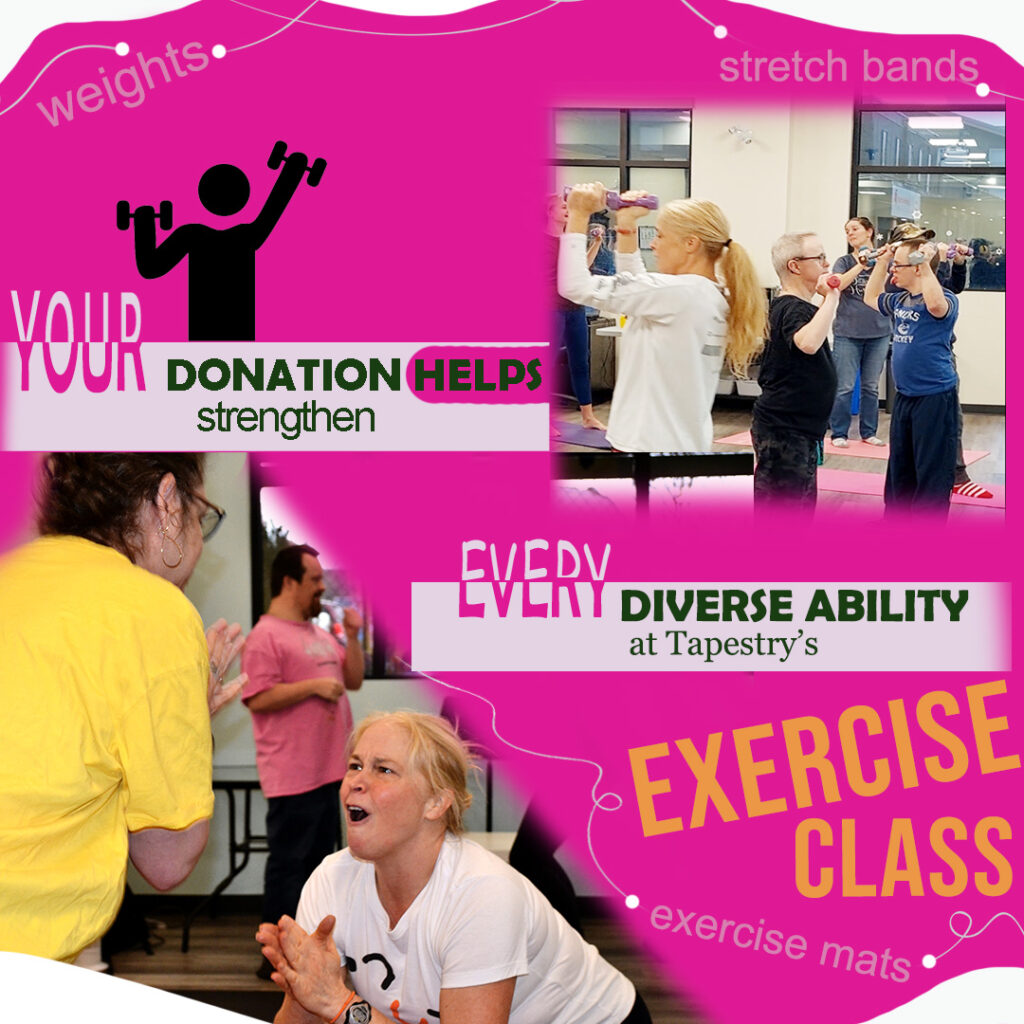
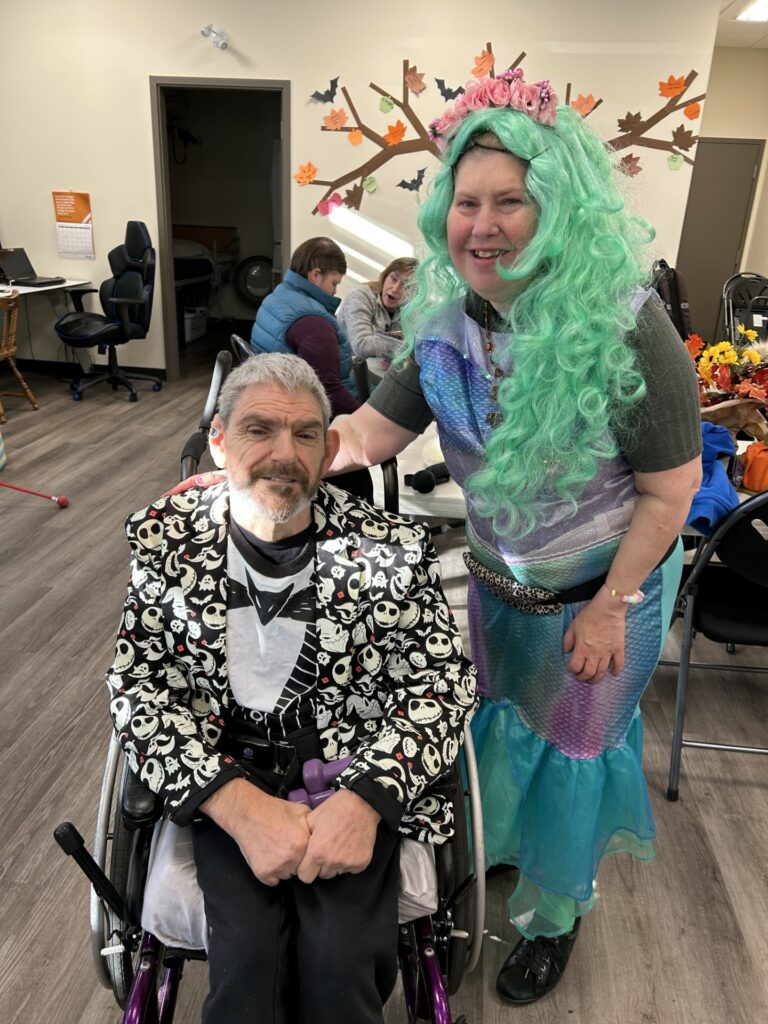
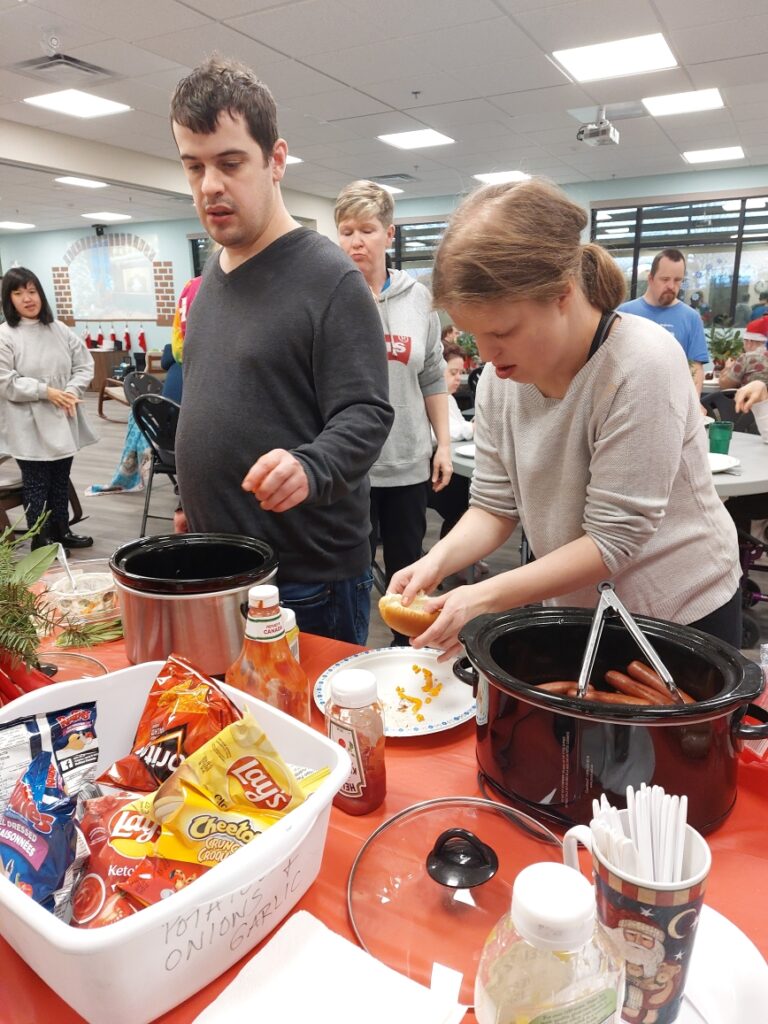
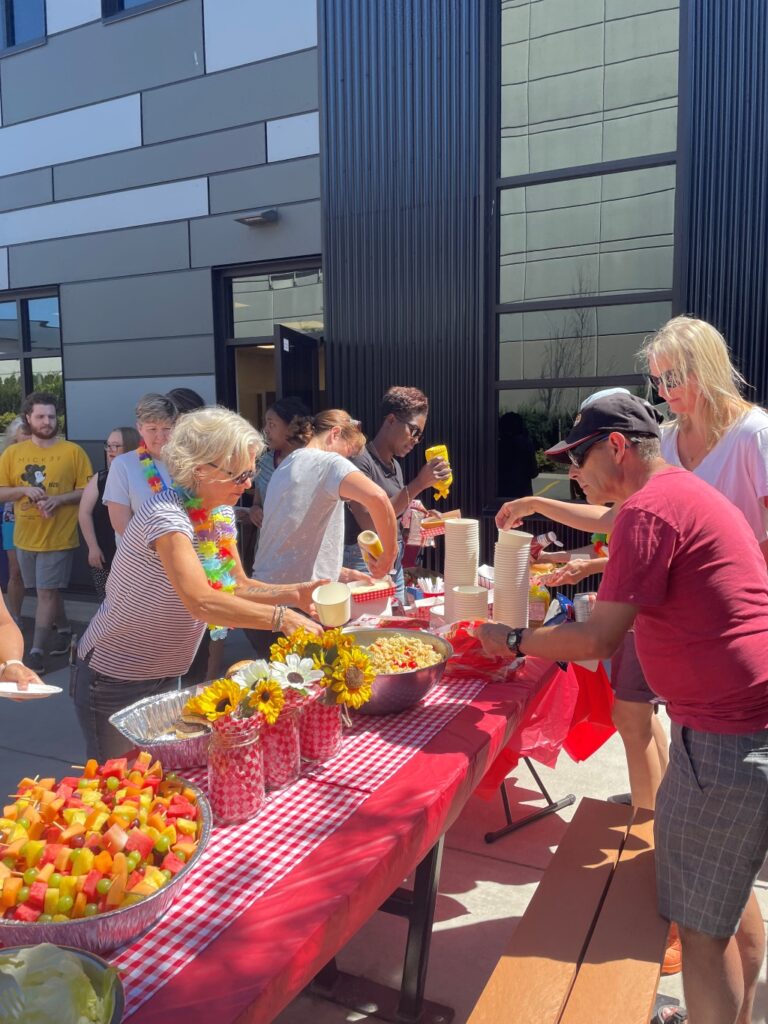
To further encourage friendships, Tapestry CI also hosts after-class socials a few times a year – a BBQ picnic in the summer, a special Valentine’s day or Halloween class, and a Christmas lunch with hot dogs and Christmas goodies. These offer more interaction and bonding time between people.
Tapestry CI’s adaptive exercise class is held Tuesday mornings on the main floor of the Provincial Office building. The class is growing and if someday they expand beyond the comfortable capacity of the CI room, we will find space. We want no one to be turned away and all to feel welcome.
Photo credits: Trevor Lum
